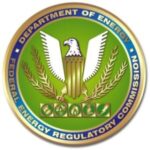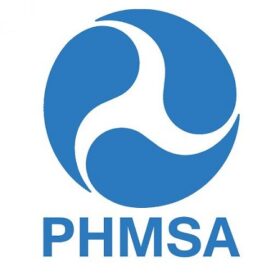Dear Ms. Conforti,
The American Gas Association (“AGA”) and the Interstate Natural Gas Association of America (“INGAA”) respectfully submit these comments in response to the United States Army Corps of Engineers’ (the “Corps’”) public notice announcing the availability of draft Engineer Circular 1165–2–220 (“Draft EC”), which would provide the policies and procedures for how the Corps processes requests to alter a Corps civil works project pursuant to Section 14 of the Rivers and Harbors Act of 1899 (“RHA”) (Title 33, Section 408 of the U.S. Code). See 83 Fed. Reg. 5075 (Feb. 5, 2018). The proposed circular would replace the current Corps policy1 and will expire two years from issuance. After two years, the proposed EC will be revised, rescinded, or converted into an Engineer Regulation. 83 Fed. Reg. at 5075, col. 3.
AGA, founded in 1918, represents more than 200 local energy companies that deliver clean natural gas throughout the United States. There are more than 74 million residential, commercial and industrial natural gas customers in the United States, of which 95 percent — more than 70 million customers — receive their gas from AGA members. AGA is an advocate for natural gas utility companies and their customers and provides a broad range of programs and services for member natural gas pipelines, marketers, gatherers, international natural gas companies and industry associates. Today, natural gas meets more than one-fourth of the United States’ energy needs.
INGAA is a non-profit trade association whose member companies transport over 95 percent of the nation’s natural gas through a network of 200,000 miles of pipelines. Ensuring the safety, security, and reliability of this natural gas pipeline network is crucial to meeting the energy needs of the United States and contributes directly to the United States economy by powering domestic industry and providing jobs. The siting, construction, and operation of interstate natural gas pipelines is regulated by the Federal Energy Regulatory Commission (“FERC”) under the Natural Gas Act, 15 U.S.C. §§ 717, et seq.
AGA and INGAA members regularly must obtain Clean Water Act (“CWA”) Section 404 permits and RHA Section 408 authorizations when natural gas pipeline projects cross Corps public works projects (e.g., levees, dams, bridges, and dredged channels). As a result of non-prescriptive Corps guidance documents confusing implementation in the various Corps Districts, this process can often be lengthy and costly and has frequently led to miscommunication and unnecessary delays in permitting.
Therefore, we support the Corps’ renewed efforts to clarify the Section 408 permission process, and to establish standard operating procedures to streamline Section 408 approvals. Our members have gained substantial experience with the Section 408 program, and they appreciate the Corps’ efforts to improve the program’s effectiveness and efficiency so that pipeline infrastructure is not needlessly delayed or restricted. In addition, the adoption of the recommendations included herein, will support the Trump Administration’s goals of expediting approvals for infrastructure projects. To that end, we provide the following comments.







